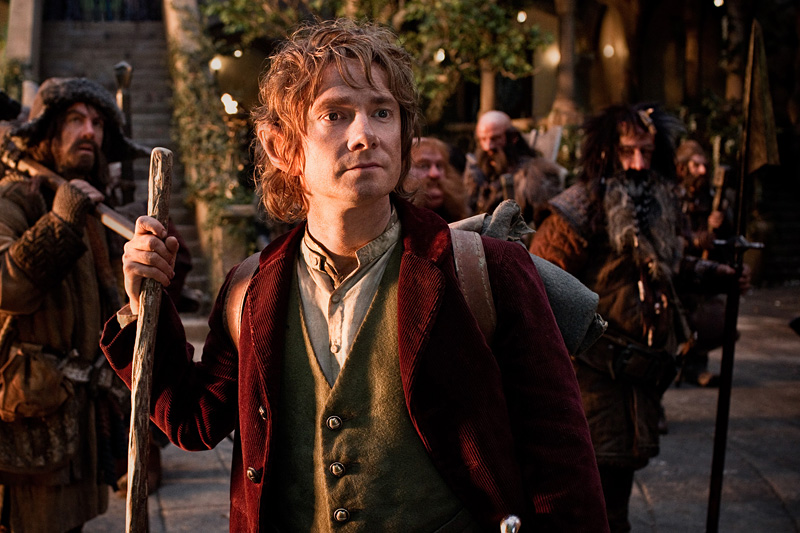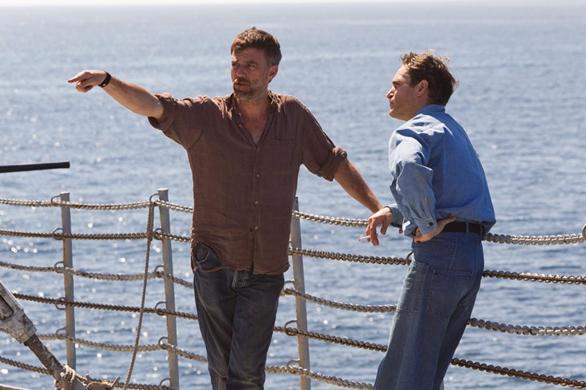Watching Django Unchained, it’s easy to imagine that Quentin Tarantino had such a blast making Inglourious Basterds that he decided to take his whole blood-spattered historical tent show down to antebellum Dixieland. Although not technically a Basterds prequel, Django stems from a similar impulse—to reframe and rewrite American history in boldly absurd strokes.
Hollywood has mostly treated the “peculiar institution” at arm’s length. Only one modern-era major-studio film, Richard Fleischer’s notorious 1975 Mandingo, dared to meet slavery on its own terms—as a grindhouse bacchanal of sadism, incest, and miscegenation that Tarantino has spoken of admiringly. The boisterous, outlandish, fiercely intelligent Django Unchained is at once an act of provocation and reparation—not just for slavery, but for Hollywood’s decades of saintly Negroes and sass-talking sidekicks.
First seen in chains after being sold at auction, the captured runaway slave Django (Jamie Foxx) finds an unlikely savior in Dr. King Schultz (Christoph Waltz). A German- American bounty hunter, Schultz needs Django’s help in identifying three wanted men formerly employed by Django’s former owner. The time is 1858, three years before the Civil War, and the abolition-minded Schultz promises Django freedom and cash in exchange for his aid. When an actor becomes as closely associated with a character as Waltz did with his Nazi colonel in Basterds, it can be a risk for that actor and director to reteam so soon. But Waltz quickly allays any such fears, embodying the role with such exuberant, theatrical flair that you can’t imagine any other actor doing it.
There’s joy in Foxx’s playing, too, and in his chemistry with Waltz, as he sheds the scarred skin of Django the slave to take on a series of new, more empowering alter egos. This being a Tarantino film, the theme of dramatic illusion is central. Schultz and Django don’t merely set out on a mission, they first “get into character”—Schultz as a slave trader and Django as his faithful valet—and choose their costumes. Foxx riding to a Tennessee plantation in Little Lord Fauntleroy regalia ranks among Tarantino’s strongest visual gags. Then Django Unchained pauses for Wagner, as Django reveals that he has a wife named Broomhilda (Kerry Washington) in need of rescue, and the good German in turn relates the story of Der Ring des Nibelungen. So it’s on to Valhalla—or as it’s called here, Candyland—a sprawling Mississippi plantation named for its owner, Calvin Candie (Leonardo DiCaprio).
An armchair phrenologist in a foppish burgundy suit and cigarette holder, his nervous eyes darting incestuously at his widowed sister, Candie is the least premeditated DiCaprio has ever seemed in a movie. But the true revelation of Candyland is Stephen (Samuel L. Jackson), a 76-year-old house slave who’s spent his life serving multiple generations of the Candie clan, and who has become institutionalized by time, his codependent relationship with his master, and the small margin of power he wields with perverted pleasure over the other slaves. Brilliantly acted by Jackson, this alternately deplorable and pitiable character is in some way the true villain of the piece. Stephen, too, is playing a role in a giant theater of the absurd, and has no intention of leaving the stage willingly.
Here and in Basterds, Tarantino has ascended to a new level of filmmaking craft and narrative sophistication. And yet, probably because he came of age in a video store and has never quite lost the autodidact’s air of bullish authority, some cultural arbiters can’t take him seriously as an intellectual. But like all the best pop art, Tarantino’s film is both seriously entertaining and seriously thoughtful, rattling the cage of race onscreen and off. (Django’s coveted “freedom papers” can be seen as another black man’s long-form birth certificate.) So it seems only fitting that when Tarantino’s new Western hero rides off toward the horizon, he is silhouetted not by sunset, but by a raging ball of Wagnerian fire.








